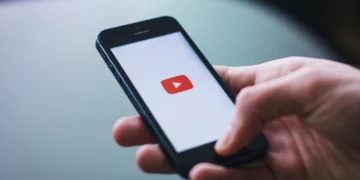If you’re reading this article, you may want to know if IPTV users can be tracked and how to avoid getting into trouble or breaking the law.
Make sure to read to the end for all the essential details.
How To Keep Your Personal Information Safe When Using IPTV
To keep your personal information safe when using IPTV, follow these essential tips:
- Update your security software regularly. This helps protect you from malware and other online threats.
- Avoid downloading files from untrusted sources. Be careful about where you get your files to stay safe.
- Change your passwords regularly. Use strong and unique passwords each time to protect your accounts.
- Always use a Virtual Private Network (VPN). A VPN encrypts your internet connection and helps keep your data secure.
- When choosing the best IPTV player, avoid the free ones.
Can police track online purchases made with a VPN?
If you’re wondering whether the police can track your online payments, especially for IPTV, when using a VPN, here’s what you need to know. A VPN mainly hides your IP address and encrypts your internet traffic. This makes it harder for third parties, including the police, to trace what you do online directly. However, it doesn’t make you completely anonymous.
For example, your payment method, like a credit card or PayPal, can still be linked to your identity. Banks and other financial institutions have rules to follow and might cooperate with law enforcement if needed. Also, some VPN providers might keep logs of your online activities. If authorities ask for these logs, they could be used to track your online purchases.
Learn more about what members in a UK IPTV forum are saying about the best options for you.
How Can IPTV Be Traced or Tracked?
It’s hard to trace IPTV usage because it involves streaming directly from the host server, not downloading files like torrents. However, IPTV can still be tracked in some ways.
Internet Service Providers (ISPs) can monitor the traffic on their networks. They can spot data usage patterns that match IPTV streaming. This can help them figure out if someone is using IPTV.
Some IPTV services, especially illegal ones, may require users to create accounts or provide personal information. This information can be used to trace the identity of the users.
In some situations, law enforcement can work with ISPs to monitor and identify people using illegal IPTV services. They might also check the traffic from known IPTV servers.
So, while it’s tricky to trace, IPTV usage is only partially anonymous and can be tracked through different methods.
If My IP Address Is Traced, What Are The Consequences?
Don’t worry too much if your IP address is traced while using IPTV. The consequences are usually not too serious.
Usually, if you’re caught using an illegal IPTV service, your Internet Service Provider (ISP) might give you a warning or temporarily limit your internet access. In some countries, ISPs are required to monitor and report illegal streaming, but how strictly this is enforced can vary.
In rare cases, people who repeatedly break the rules or who distribute IPTV services could face legal trouble, such as fines or legal notices. However, for most users, a warning from the ISP is the most common outcome.
It’s essential to know the laws in your country and consider using legal streaming services to avoid any potential risks.
What information could a VPN give to the police?
VPN providers might have to give the police certain information if required by law. Although VPNs are designed to protect your privacy by hiding your IP address and encrypting your data, they still have to follow the rules in the countries they operate in.
Depending on the VPN provider’s rules and the laws in their country, they might be required to log and share data like:
- Connection logs include information about when you connected to the VPN, how long you were connected, and which server you used.
- User data: If the VPN keeps logs, this could include your original IP address, the IP address assigned by the VPN, and the websites or services you accessed.
- Account information: This could involve details like your email address, payment information, and the physical location you provided.
To reduce the chances of your information being shared with authorities, it’s essential to choose a VPN provider with a strict no-logs policy
Conclusion
it’s important to understand the risks when using VPNs and IPTV services. While a VPN can give you some privacy and security, it doesn’t fully protect you from being tracked or facing legal issues.
You should also remember that you might need to find out if the IPTV provider you’re using is legal. Authorities are usually more interested in going after providers than individual users.
To avoid problems, stick to legal services. Choosing a reliable VPN provider that doesn’t keep logs can help keep you safer.
In the online world, being careful and staying informed is your best protection.



























































